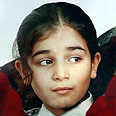
We are a people of conscience, a people of justice. We are a people who knows what it means to be hated and what it means to suffer. This is what I have been raised to believe. This is why I have faith that when this story reaches us, all of us, something will occur. At first, we will hear this story, and a flash behind our eyes will go off that will tell us “this story is false, this story cannot be true.” This story is a lie, we will think to ourselves, or at least an exaggeration. It must be, because our people does not shoot a ten-year old girl in the back of the head, and then claim, collectively, confidently, that the girl was never shot.
But even as our intellects race to deny, to clarify, to justify, something in our hearts will twitch. This twitch will grow from somewhere ancient, from somewhere tortured, from somewhere deep inside of our collective soul. This twitch will begin with the horrifying recognition that our first reaction when we read of this death was not one of compassion or of empathy or of pain but rather of disbelief, of rationalization, of counterarguments simply because this little girl happened to be born with the label “Palestinian.”
Her name was Abir. She was killed in 2007 when she was struck in the back of her head by a rubber bullet fired by Israeli Border Police in the West Bank village of Anata. In direct contradiction to eyewitness testimonies and to an autopsy publicized by the Israeli human rights group B’Tselem, the Border Police–with the backing of both army and state–claimed that Abir was not hit by a rubber bullet but was rather killed by a rock. Last week, in a simple but rare act of judiciary justice, the Jerusalem District Court ruled that the State was responsible for Abir’s death, that Abir was indeed shot, and that the “shooting did not target rioters or stone throwers.” Abir was killed, and her sole crime was being a Palestinian.
This past summer, I had the incredible honor to sit in on a radio show hosted by Bassam Aramin, Abir’s father, and Rami Elhanan. Rami is an Israeli Jew who, like Bassam, lost his young daughter to hatred and violence. Smadar Elhanan, who was killed in a suicide bombing in Jerusalem, was just like Abir Aramin: guilty only of living in a certain city, walking on a certain street, being born into a certain identity group. Both Bassam and Rami have suffered losses beyond anything I can come close to imagining, and yet every week, the two of them meet in the East Jerusalem studio of Radio All For Peace and discuss the possibility of creating a reality in which no more little girls will be murdered because of who they are and where they were born. I was deeply moved by the incredible courage and dignity embodied by both men. In the same notification as the court ruling, written by Rami, I was informed that the truth of Abir’s story would be broadcast to the Israeli people in Channel 2’s weekend edition. And my only thought was “finally.” Finally, we would hear about this horrific tragedy perpetrated and then covered up by our people. Finally, we would be made to recognize that this tragedy is not something unfamiliar, distant, but rather is something that we know all too well. Finally we would be made to realize that Smadar’s story and Abir’s story are essentially the same story. Finally we would weep for Abir, just as we weep for our own suffering. Finally we would stand up and say that we’ve had enough: Enough violence, enough occupation, enough terror, enough murder, enough little girls being killed. Or maybe we would allow that flash inside our head to write it off as a lie, as an exaggeration, as something that does not have to do with us.
